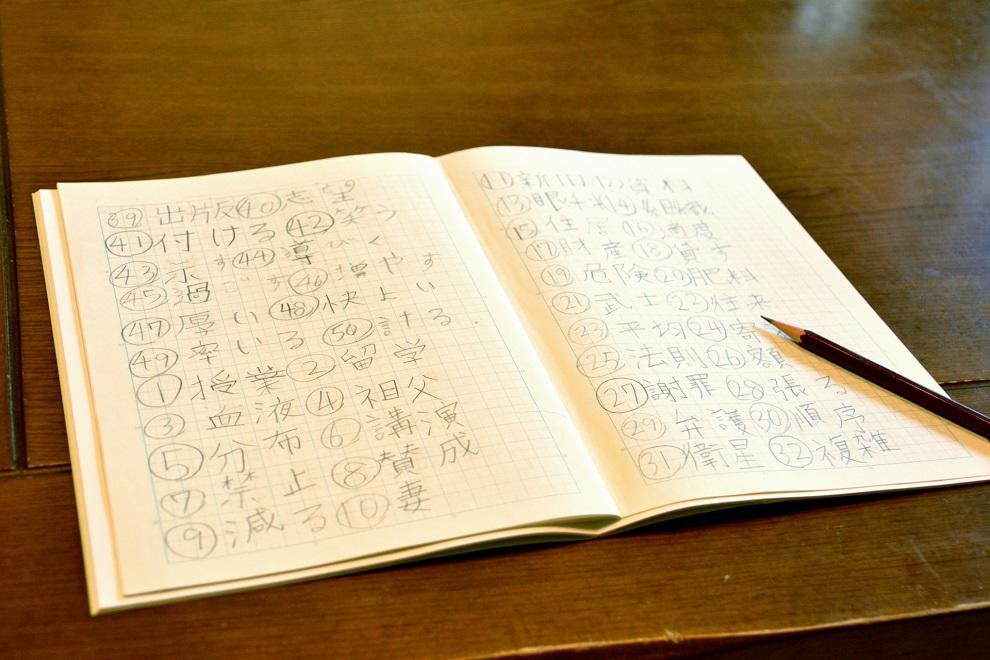
If you're preparing for the JLPT N4, one of the most common questions is: how many words in JLPT N4 should you know to succeed? As an intermediate step between beginner and upper levels, JLPT N4 builds upon the foundation set by N5. For many learners, especially in India, this stage is a crucial milestone toward fluency in Japanese and Many students ask how many vocabulary in N4 is sufficient—mastering around 1,500 words gives you a solid foundation.
Let’s dive into the vocabulary expectations for N4, understand the word count, explore the key topics, and learn effective strategies to master the syllabus.
You’ll need to know approximately 1,500 vocabulary words to pass JLPT N4. This is a significant step up from the N5 level, which requires around 800 words. These words include a mix of basic and slightly advanced vocabulary that you’ll encounter in daily conversations, readings, and listening exercises.
The JLPT N4 is the second level of the Japanese Language Proficiency Test (JLPT) and is designed to test the ability to understand basic Japanese used in everyday situations.
So exactly how many words for JLPT N4 should you study?
Not sure whether to take the JLPT or NAT exam? Find out which one suits you better in our blog post on Which is Better: JLPT or NAT Exam.
The JLPT N4 requires a vocabulary of roughly 1,500 words. Here's a sample of common and important vocabulary words for the JLPT N4, covering various categories. This is not a complete list but a representative selection to get you started:
Knowing the number isn’t enough. Understanding the types of words and how they’re used is essential to retain them and apply them in real-life scenarios.
1. Essential Verbs and Adjectives
Verbs and adjectives form the core of your sentence-building ability. You’ll come across common verbs like:
Useful adjectives include:
These help you describe daily routines, preferences, emotions, and physical states more clearly.
2. Nouns from Everyday Life
You will learn nouns related to:
These are especially useful when speaking about daily life, asking for directions, or having casual conversations.
Read More:
3. Time, Dates, and Numbers
N4 expands on the basics learned in N5. You’ll need to handle:
Words like 今日 (today), 来週 (next week), and 毎日 (every day) are frequently used in JLPT listening and reading sections.
4. Practical Expressions
You’ll also need to know functional phrases, such as:
These help navigate conversations politely and are often used in customer service or travel situations.

Now that you know how many words in JLPT N4 you need to learn, the next step is figuring out how to master them effectively. Here are some tried-and-tested techniques:
1. Use Digital Flashcards
Apps like Anki and Quizlet allow you to build personalized decks for N4 vocabulary. These apps use spaced repetition, which is highly effective for long-term memorization.
Also look for decks labeled “how many words in JLPT N4 PDF download” or “JLPT N4 vocabulary PDF” to get started with ready-made study material.
2. Read and Listen to Beginner Content
Read children’s books, watch anime with subtitles, or listen to beginner Japanese podcasts. Seeing words in context boosts your retention and teaches you natural usage.
3. Practice Writing and Speaking
Writing your own sentences and saying them aloud helps reinforce vocabulary. Start journaling simple daily routines or narrate your day in Japanese.
4. Review Regularly
Set a weekly revision schedule. Group words by topic (e.g., food, travel, work) to keep your learning organized.
5. Track Your Progress
Divide your 1,500 words over weeks or months. If you study 20 new words per day, you can master the N4 vocabulary in about 75 days.
Here’s a quick comparison to put the number in perspective:
If you’re curious about these levels, you can search “how many words in JLPT N5 PDF,” “how many words in JLPT N3,” or even “how many words are in JLPT N1” for structured vocab lists.
Also, if you prefer visual learning, try searching for “JLPT N4 vocabulary with pictures PDF” which can be helpful for memory retention.

1. How many words should I know for JLPT N4?
You should aim to learn around 1,500 vocabulary words for the JLPT N4. These words cover everyday situations, basic conversations, and common topics like travel, work, and family.
2. How many vocabulary words are there in JLPT N4?
The JLPT N4 includes approximately 1,500 vocabulary words. These build upon the N5 level and introduce more verbs, adjectives, and context-specific terms.
3. Is N4 harder than N5?
Yes, N4 is more advanced than N5. It requires not only a larger vocabulary and more kanji but also a better grasp of grammar and reading comprehension.
4. How fluent is N4 Japanese?
Passing N4 shows you're at a lower-intermediate level. You can handle simple conversations, read basic sentences, and understand commonly used expressions in daily life.
5. What comes after JLPT N4?
After N4, the next level is JLPT N3, which bridges intermediate and advanced proficiency. It introduces more complex grammar, vocabulary, and real-world language use.
So, now you know the answer to the question, how many words in JLPT N4—about 1,500 words. While it may sound like a lot, this vocabulary represents your key to everyday conversations and real-life communication in Japanese. If you’re unsure how much vocab for N4 is required, aim for consistent study of beginner to lower-intermediate terms.
With smart planning, consistent effort, and the right resources, these words can become part of your active language skills. Whether you're preparing from India or anywhere else, remember—language learning is a journey, and each step forward is a win.
If you’re looking for more structured support or a JLPT-focused course, don’t hesitate to reach out. We offer guidance, resources, and preparation materials to help you succeed.